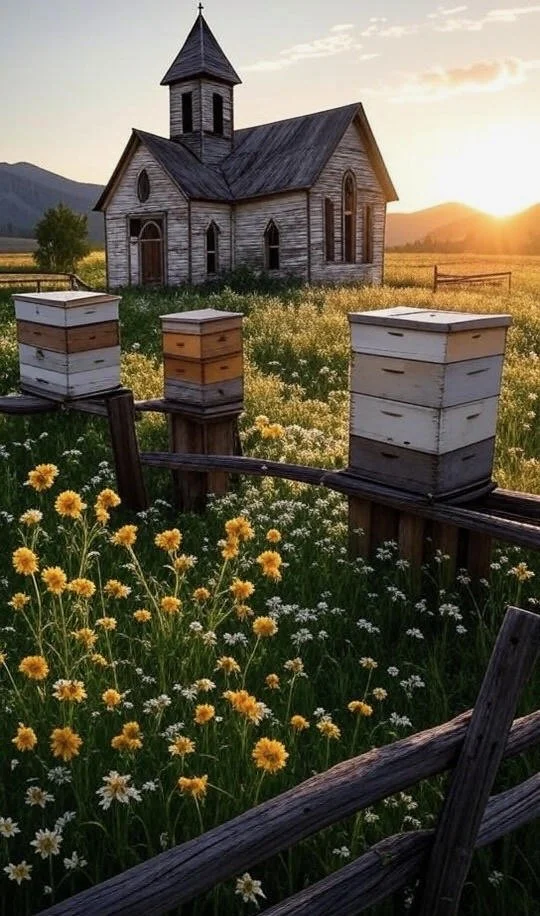Reflections from the Hive — Fall 2025
As the season winds down and the goldenrod fades, I find myself reflecting on another year here at Old Church Honey Bee Farm. Tending bees has taught me patience and humility. They remind me every day that survival depends on balance, timing, and community.
This year was not an easy one. Across the country, beekeepers saw some of the highest colony losses in decades. Many reported losing more than half of their hives between last summer and this spring. The reasons are complicated. Varroa mites, pesticide exposure, lack of forage, and wild swings in the weather all played a part. Each of these challenges might be manageable on its own, but together they created a storm that was hard to withstand.
Even with the challenges, the bees still gave me moments of awe. I will never forget the low hum of a strong colony on a warm fall day, the sight of workers gathering the last of the asters, or the quiet rhythm of a hive preparing itself for winter. These moments remind me why I do this and why it matters that people continue to care.
One hive in particular stood out to me this season. I had a colony that struggled early on. Their queen was slow to build up, and by midsummer, they were lagging far behind the others. I debated combining them with a stronger hive, but I decided to give them a chance. I added a frame of brood from a thriving colony and reduced their space so they would not be stretched too thin. Slowly, they began to recover. By September, they were buzzing with new energy, and I watched them bring in goldenrod nectar with surprising strength. They may still be one of my smaller colonies, but I have a feeling they will pull through the winter. Watching their resilience reminded me that even when the odds look poor, bees find a way forward.
How You Can Help Bees This Fall
Even if you are not a beekeeper, you can still make a difference.
Plant for the season ahead. Fall-blooming plants like asters and goldenrod give bees food now, and bulbs planted in autumn will provide nectar and pollen early next spring.
Go easy on the yardwork. Leaving leaves and stems over the winter provides shelter for native bees and other beneficial insects. A yard that looks a little wild can be healthier for pollinators.
Be mindful with sprays. If you use pesticides or herbicides, read the labels carefully. Apply them in the evening when bees are not flying, and use natural alternatives whenever possible.
Support local food and honey. When you buy from local farmers and beekeepers, you are strengthening pollinator-friendly agriculture in your community.
The truth is that small actions add up, and the bees benefit from every choice we make.
Looking Ahead at Old Church Honey Bee Farm
I know that change is needed, not only for the bees but also for the people who care for them. That is why in 2026 I am creating a Teaching Apiary here on the farm. This will be a place where anyone can learn about bees up close. Whether you are a student curious about pollinators, a gardener who wants to support native species, or someone considering your first hive, you will be welcome. My goal is to share what I have learned so that more people can become stewards of these incredible creatures.
I am also excited to share that the farm will be partnering with Hives for Heroes, a national nonprofit that provides connection and purpose for veterans through beekeeping. Their program pairs new veteran beekeepers with experienced mentors, creating relationships that support both bee health and veteran well-being. I am honored that our farm will play a role in this mission.
A Note of Gratitude
To everyone who asked about the bees this year, planted wildflowers, avoided pesticides, or chose to buy your honey locally, thank you. You are part of this work too. The colony losses across the country were sobering, but with your help, there is hope for stronger seasons ahead.
As winter settles in and my bees cluster together for warmth, I will be doing much the same. This is a time for rest, reflection, and preparation for spring. I look forward to the hum of healthy hives next year, and I look forward to sharing it with you.
With gratitude,
Jason Martin
Old Church Honey Bee Farm


